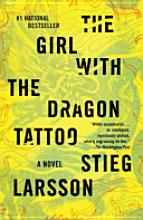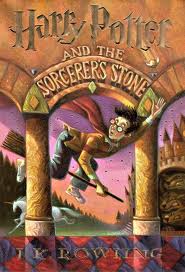| A writer friend of mine blogged about Writing on Reading: The Girl with the Dragon Tattoo and said it was "a good read" but "could have been better". This got me thinking about book buzz... |  |
I'm going to look at the beginnings of three of the most buzzzed about books of recent memory and see if I can glean anything from them.
 | In my opinion, Larsson's book The Girl with the Dragon Tattoo has a lot to recommend it, but starts a bit slow: It happened every year, was almost a ritual. And this was his eighty-second birthday. When, as usual, the flower was delivered, he took off the wrtapping paper and then picked up the telephone to call Detective Superintendent Morell who, when he retird, had moved to Lake Siljan in Dalarna. This central mystery is actually very interesting, but initially it's not described in the most dramatic way. When the book switches to Blomkvist and his magazine, things slow down. |
 | J.K. Rowling's book Harry Potter and the Sorcerer's Stone begins like a fairy tale: THE BOY WHO LIVED. Mr. and Mrs. Dursley, of number four, Privet Drive, were proud to say that they were perfectly normal, thank you very much. They were the last people you'd expect to be involved in anything strange or mysterious, because they just didn't hold with such nonsense. IMHO, this is charming. Kids all over the world see to agree. |
 | Stephanie Meyer's Twilight begins with: My mother drove me to the airport with the windows rolled down. It was seventy-five degrees in Phoenix, the sky a perfect, cloudless blue. I was wearing my favorite shirt - sleeveless, white eyelet lace; I was wearing it as a farewell gesture. The data shows teenaged and tween girls loved this. |
What did you think of these wildly successful novels? ;)
As far as I can tell these books have nothing in common in terms of subject, writing ability, or anything else. They also probably have very little overlap in demographic. So, why all the buzz? I can only deduce when a book gets to a certain level of buzz something else kicks in, i.e. crowd psychology. When a book gets sufficiently buzzy, the collective crowd gives it communal reinforcement. This social phenomenon asserts that such novels are worthy of purchase/consumption. People seem helpless to resist the communal reinforcement when it gets to these extreme levels of buzz.
What do you think?
And as writers, how can we tap into this?

No comments:
Post a Comment